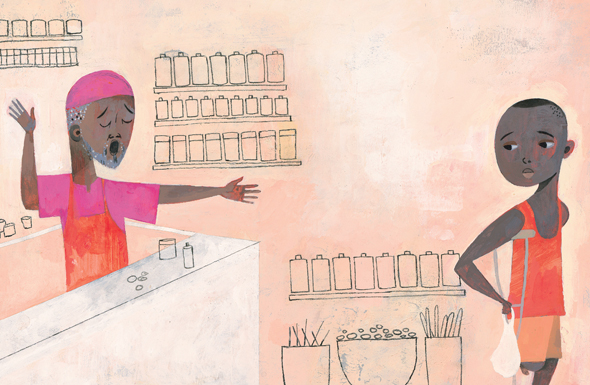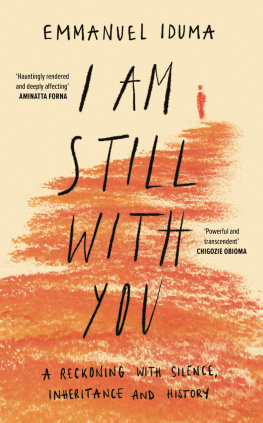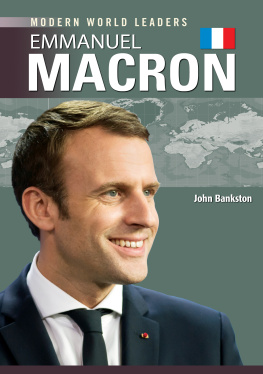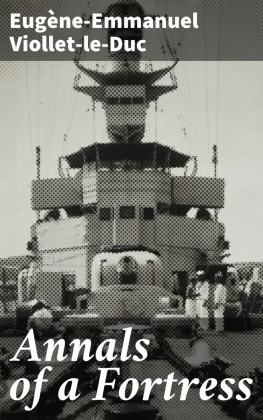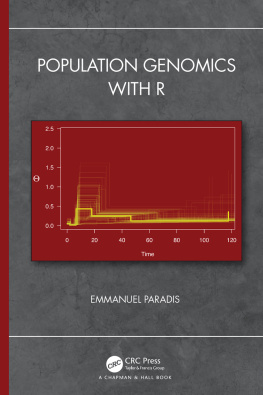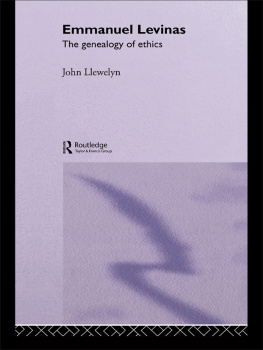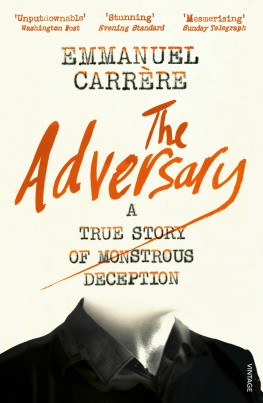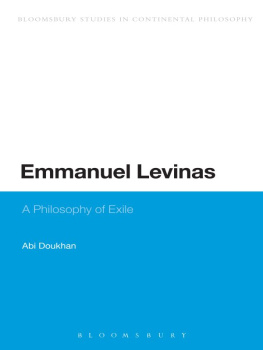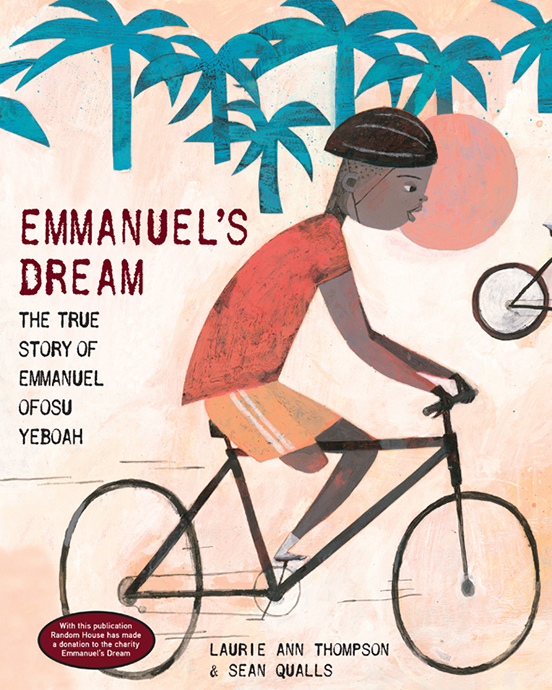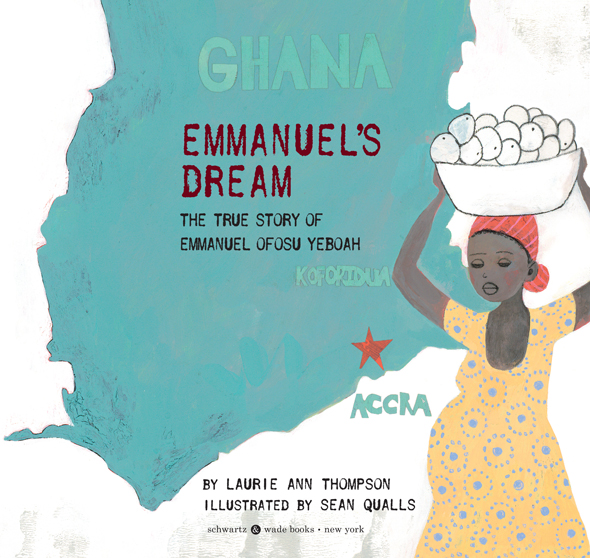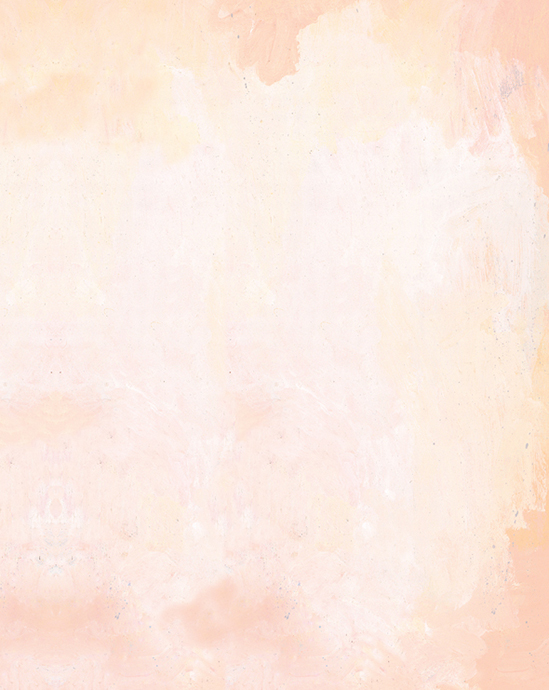
For Emmanuel, whose courage and character are an inspiration L.A.T.
For Emmanuel and the dreamers S. Q.
With this publication Random House has made a donation to the charity Emmanuels Dream.
Text copyright 2015 by Laurie Ann Thompson
Jacket art and interior illustrations copyright 2015 by Sean Qualls
All rights reserved. Published in the United States by Schwartz & Wade Books, an imprint of Random House Childrens Books, a division of Random House LLC, a Penguin Random House Company, New York.
Schwartz & Wade Books and the colophon are trademarks of Random House LLC.
Visit us on the Web! randomhousekids.com
Educators and librarians, for a variety of teaching tools, visit us at RHTeachersLibrarians.com
Library of Congress Cataloging-in-Publication Data
Thompson, Laurie Ann.
Emmanuels dream : the true story of Emmanuel Ofosu Yeboah / by Laurie Ann Thompson ; illustrated by Sean Qualls.First edition. pages cm
ISBN 978-0-449-81744-5 (trade) ISBN 978-0-449-81745-2 (glb) ISBN 978-0-449-81746-9 (ebk)
1. Yeboah, Emmanuel Ofosu, 1977 Juvenile literature. 2. People with disabilitiesGhanaBiography Juvenile literature. 3. CyclistsGhanaBiographyJuvenile literature. 4. GhanaBiographyJuvenile literature. I. Qualls, Sean, illustrator. II. Title.
HV3013.Y43T56 2015
362.4092dc23
[B]
2014005767
The illustrations were rendered in mixed media.
Random House Childrens Books supports the First Amendment and celebrates the right to read.
v3.1
Contents
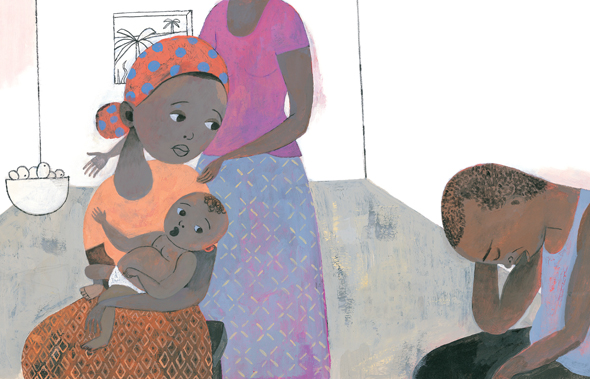
In Ghana, West Africa, a baby boy was born:
Two bright eyes blinked in the light,
two healthy lungs let out a powerful cry,
two tiny fists opened and closed,
but only one strong leg kicked.
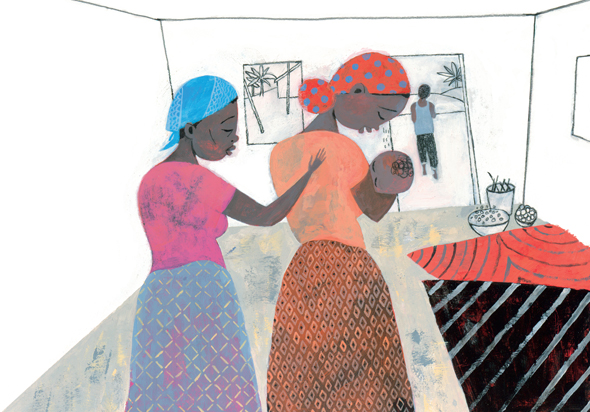
Most people thought he would be useless, or worse
a curse.
His father left, never to return.
But his mother had faith.
Her name was Comfort,
and she named her first child Emmanuel,
meaning God is with us.
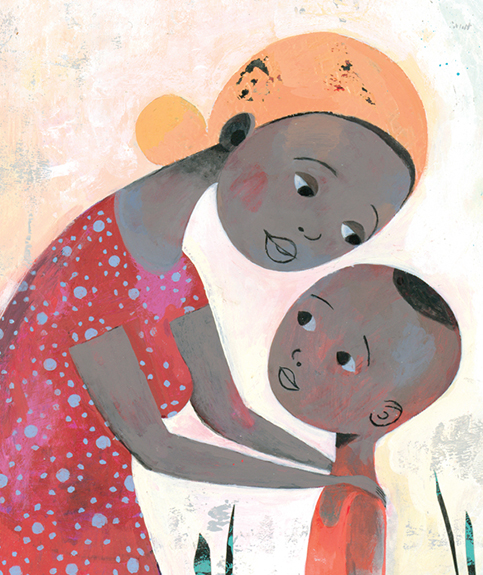
As Emmanuel grew,
Mama Comfort told him he could have anything,
but he would have to get it for himself.
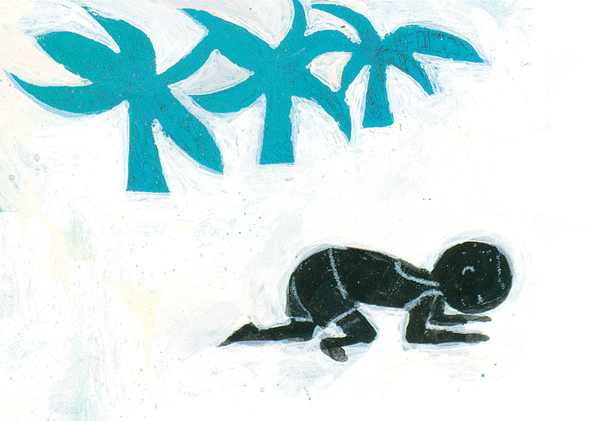
He learned to crawl and hop,
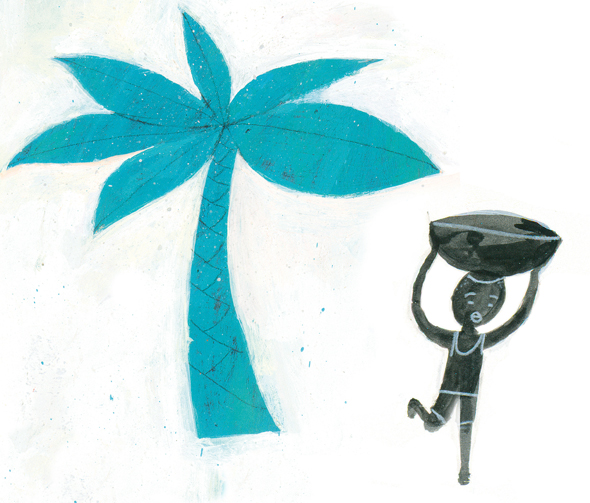
to fetch water and climb
coconut trees.
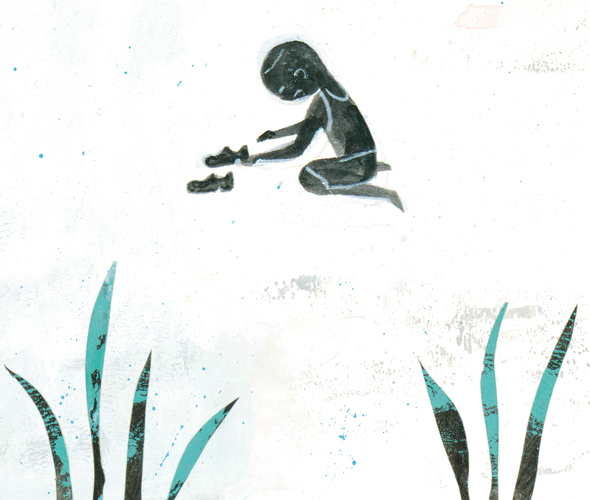
He even shined shoes to earn money.
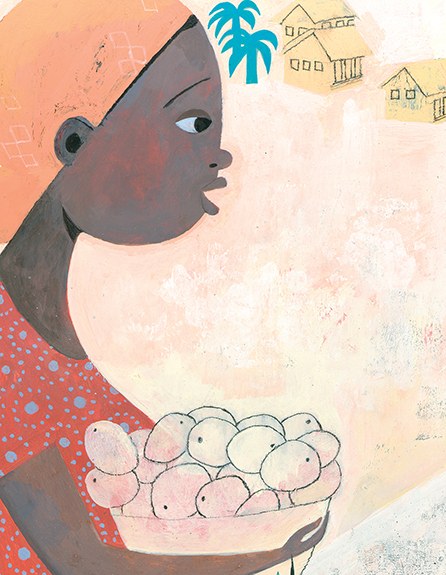
Most kids with disabilities couldnt go to school.
Still, Emmanuels mother carried him there,
until one day she said, You are too heavy.
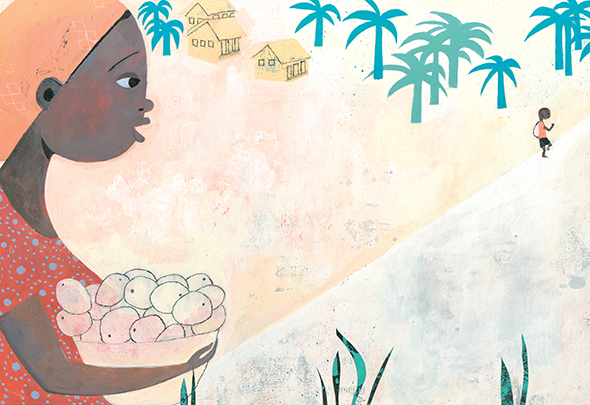
From then on, Emmanuel hopped to school and back,
two miles each way,
on one leg,
by himself.
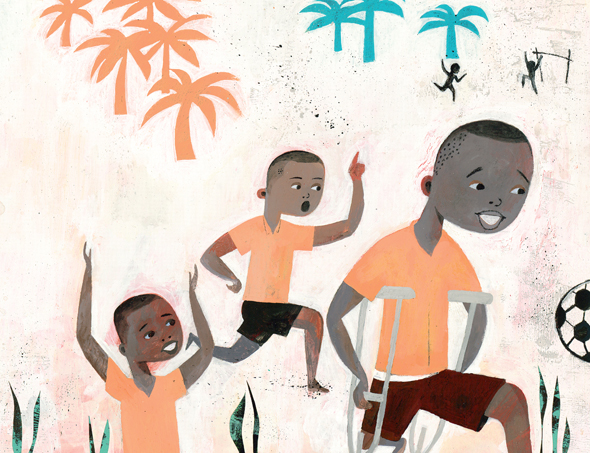
At first, nobody would play with him.
So Emmanuel saved his money
and bought something none of his classmates had:
a brand-new soccer ball.
Of course he would share it
if he could play, too.
Lunging and spinning on crutches
his grandmother had found for him
and kicking the ball with his good left foot,
Emmanuel earned their respect.
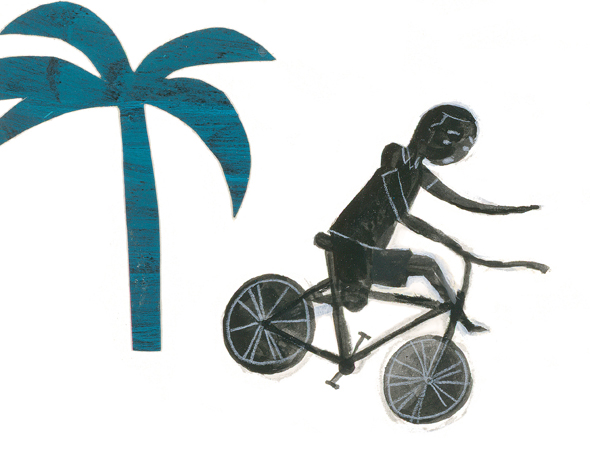
His new friends sometimes used their lunch money to rent bikes.
Would Emmanuel be able to join them?
His friend Godwin pushed him fast so he could balance.
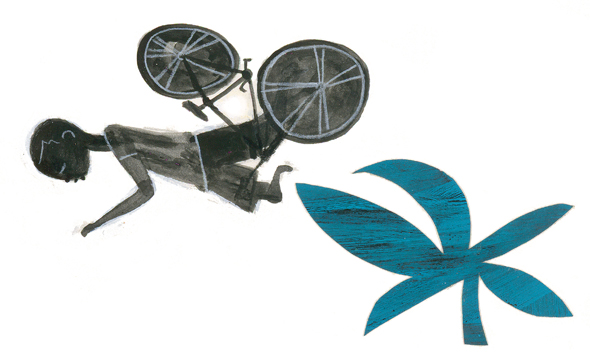
Over and over again, Emmanuel fellhard
but finally
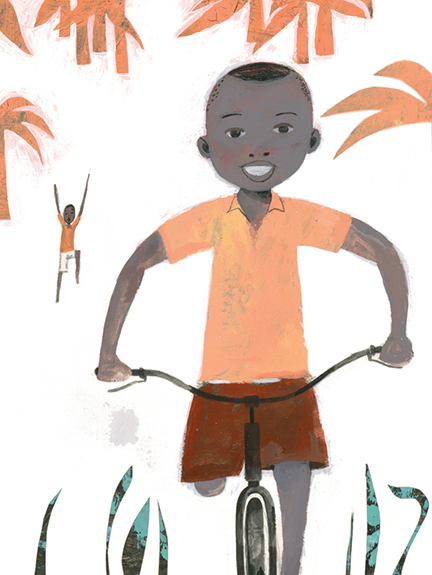
he rode!
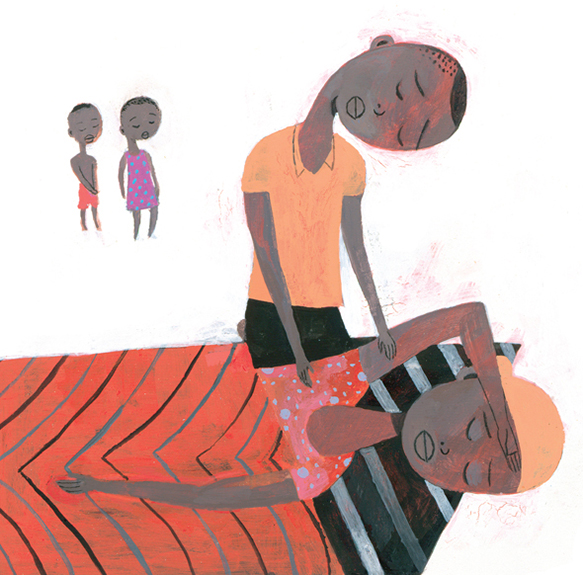
When Emmanuel was thirteen,
Mama Comfort got very sick.
She could no longer sell vegetables at the market,
and Emmanuels sister and brother were too little to work.
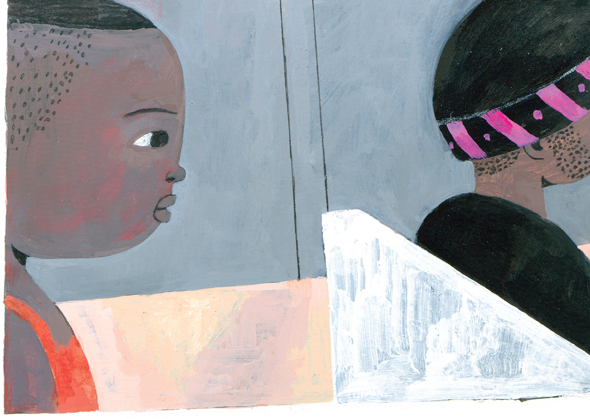
He would have to support them.
Against his mothers wishes, Emmanuel snuck out
and boarded a midnight train to the bustling city of Accra,
one hundred and fifty miles away,
alone.
He didnt know it then, but it would be two years
before he saw his family again.
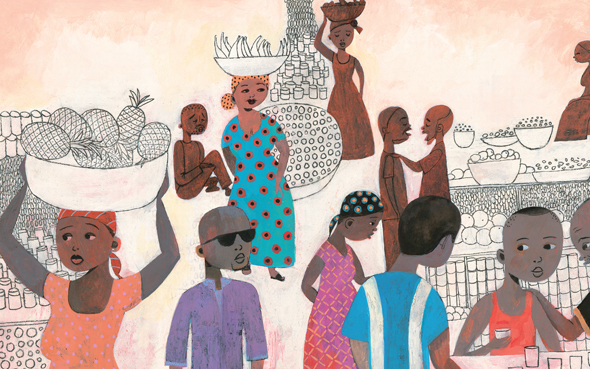
Emmanuel arrived full of hope:
There were so many people!
But no one would hire him.
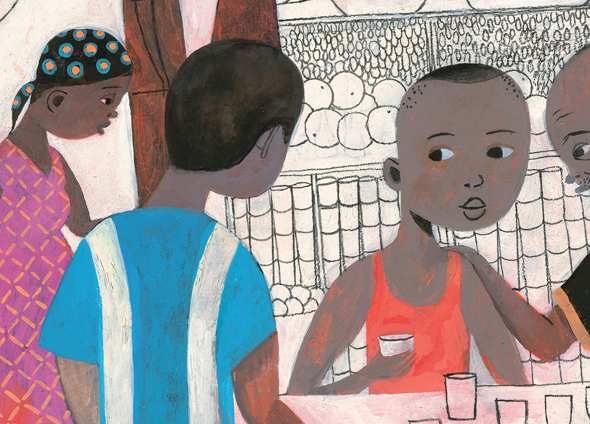
Shopkeepers and restaurant owners
told him to go out and beg
like other disabled people did.
Emmanuel refused.
Finally, a food stand owner offered him a job
and a place to live.
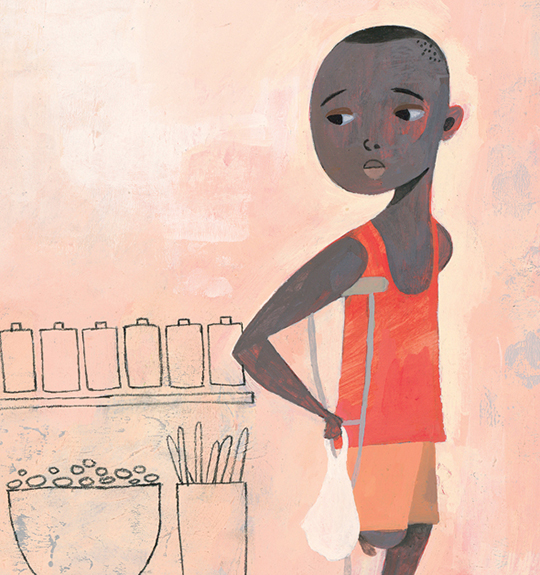
When Emmanuel wasnt serving drinks,
he kept busy shining shoes.
He earned money
and sent it home.
